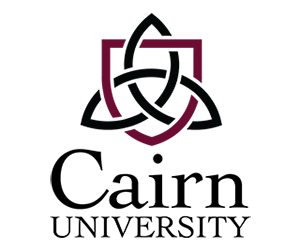

One of our annual traditions, which spoke to some of these Christmas tensions, was watching the animated television special, A Charlie Brown Christmas. It was produced in 1965, and to many today, it may seem terribly dated. However, it stands in its place as the quintessential Peanuts film—complete with artful music, endearing characters, predictable emotional conflict for the protagonist, and a concluding spiritual moral. These things, along with the nostalgic feel of the film, the animation, and the absence of the irreverent and violent themes of our day, may contribute to some describing it as sappy or even irrelevant. But it is, indeed, timely and much needed. In a world that seems so mired in conflict, tension, and cynicism—where there is hesitancy to speak the ancient truths of the Christian faith in response to human need—this piece of popular culture speaks volumes. And that begs the question, why?
In the film, Charlie Brown is engaged in yet another existential crisis that is only exacerbated by his friends and circumstances. He wants to find the true meaning of Christmas—one with more substance and gravitas than what he is experiencing. The commercialism, consumerism, and egoism of the season is weighing upon him heavily. There are tensions over gifts, decorations, musical pageants, and so on. It seems that at every turn, Charlie Brown is confronted with what has become a vapid celebration of self-absorption. And to compound his familiar agony, though he is searching for answers, no one has any suitable to his quandary. That is, until faithful and quirky, wise-beyond-his-years Linus takes center stage. After that flop of a Christmas tree incident, Charlie Brown is at the end. He has resigned himself to the fact that there is no longer any meaning in Christmas. He has accepted the modern secular notion that we are the ones who give it meaning. He has realized that if we are meaningless people, then so too is the season. But something within Charlie Brown tells him there must be more. In the world we have constructed, where we define our own realities and truths, why should our perception of Christmas be any different?
But Linus. Linus cuts through the folly of self-absorption, cuts through the commercialism and consumerism, cuts through the misguided notions of the meaning of Christmas. And he does so not simply by showing love for the frail little tree or leading his friends in the singing of a carol. He does so by reading the biblical account of the birth of Christ. He reads from the second chapter of the Gospel of Luke, which elicits silence, reverence, and reflection from his fellow holiday revelers. This passage contains all the drama, all the magic, and all the meaning we require. It is an ancient telling of a miraculous intervention in our history by God Himself. It is a profound and penetrating narrative that speaks in stark contrast to the voices of secularism that aspire to cloud our vision and muffle the message. The traditional reading of this passage serves to remind us of the true meaning of Christmas—for which purpose it was written.
Luke 2:8–20
And in the same region there were shepherds out in the field, keeping watch over their flock by night. And an angel of the Lord appeared to them, and the glory of the Lord shone around them, and they were filled with great fear. And the angel said to them, “Fear not, for behold, I bring you good news of great joy that will be for all the people. For unto you is born this day in the city of David a Savior, who is Christ the Lord. And this will be a sign for you: you will find a baby wrapped in swaddling cloths and lying in a manger.” And suddenly there was with the angel a multitude of the heavenly host praising God and saying,
“Glory to God in the highest, and on earth peace among those with whom he is pleased!”
When the angels went away from them into heaven, the shepherds said to one another, “Let us go over to Bethlehem and see this thing that has happened, which the Lord has made known to us.” And they went with haste and found Mary and Joseph, and the baby lying in a manger. And when they saw it, they made known the saying that had been told them concerning this child. And all who heard it wondered at what the shepherds told them. But Mary treasured up all these things, pondering them in her heart. And the shepherds returned, glorifying and praising God for all they had heard and seen, as it had been told them.
This article first appeared in-print in the Bucks County Courier Times on December 19, 2021.




